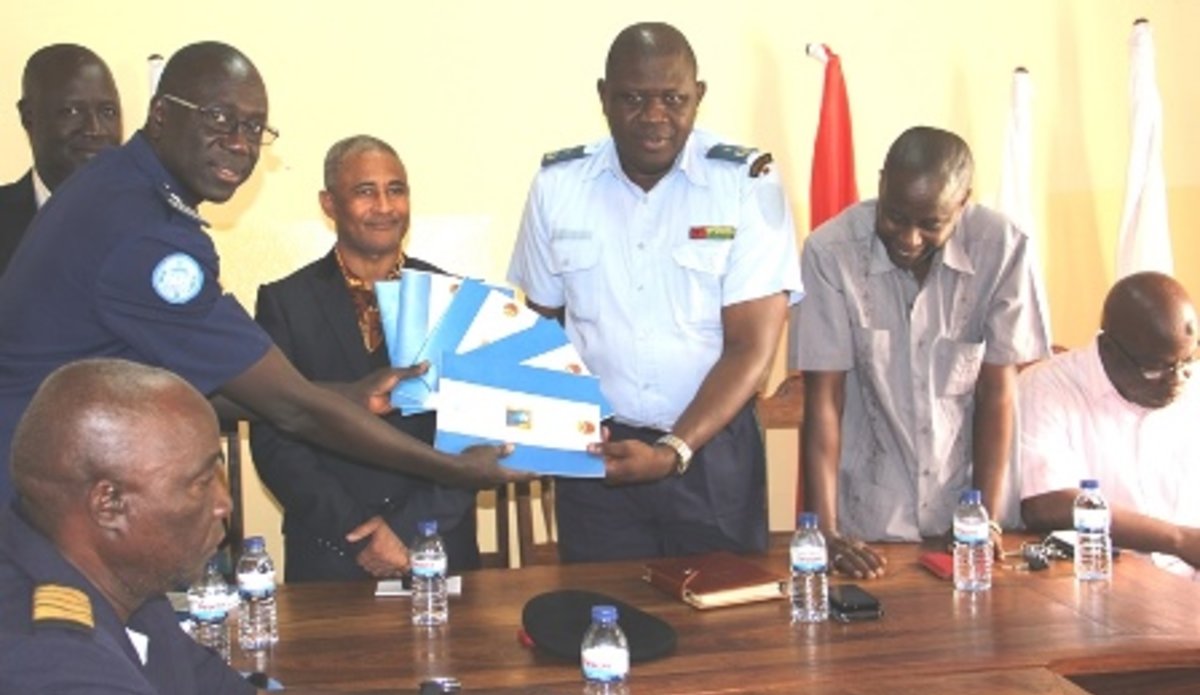Handover of the Model Police Manual
13 March 2015 - The handover ceremony of five volumes of the Model Police Manual, out of 10, in a total of 1.500 copies today took place at the headquarters of the Public Order Police (POP), in Bissau, with the support of UNIOGBIS.
The ceremony was attended by POP National Commissioner, Brigadier General Armando Nhaga, and UNIOGBIS Police Senior Counsellor, Colonel Doudou Sail, among other guests.
From a the total of 10 volumes,5 have been handed over by UNIOGBIS /ROLSI/ Police Reform Section, including volume I - POP's General Administration and Command; volume IV - Evidence collection, Analysis and Interpretation; volume V - Arrest Procedures; volume VI - Criminal Intelligence and Information Management; volume VII - Communications and Transmissions - 300 copies for each volume.
The resource material can be used by the training institutions like the police academy, the police head quarter and the regional and Bissau based police stations, in implementing best practices and standard operation procedures.
This initiative follows a first ceremony in early 2013, with the handover to the national authorities of Volume III (Police Station's Organization and Functioning) and Volume X (Police Legislation), for a total of 200 copies. In January 2014, in a second ceremony, were handed over volume II (Human Resources Management and volume VIII (Community Policing).
In 2011, in consultation with national Police partners, UNIOGBIS and the national commission for review of police manuals started preparations for a Model Police Manual. The Manual was conceived as separate volumes covering topics including: constitution and administration of a Police Headquarters; human resources management; operation of a model police station; evidence collection and investigation; arrest; criminal intelligence collection; wireless communication; community policing; specialized crimes investigation (drug trafficking, human including child trafficking, money laundering); annex of collection of organic laws.
In 2010, UNIOGBIS, under overall development of the law enforcement structures in the country, provided guidance to the national partners in reviewing the organization and functioning of police stations in respect of infrastructure, equipment, administrative procedures and staffing. The aim was to provide the model for a well-structured and well-functioning police station as the centre of policing in the field.
The concept of a Model Police Station is not limited to physical infrastructure but also requires functioning organizational structures and administrative processes, adequately-trained police officers with the necessary equipment.
 UN
UN





